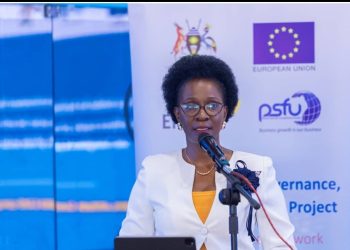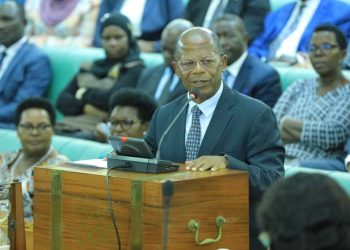The Law Council has scrapped the pre-entry exams for the bar course at the LawDevelopment Centre (LDC).
According to the memo issued by the Law Council secretary, Margaret Apiny, yesterday, the bar course pre-entry exams have been scrapped for a period of two years, pending the conclusion of the final legal procedures.
It has been a requirement under the professional requirements for admission to post-graduate bar courses for law graduates to pass examinations set by the Law Council before being admitted.
“Law Council has resolved to suspend LDC pre-entry examinations for a period of two years, effective this year. LDC is authorized to admit 1,680 students for the bar course for the academic year 2019/20,” Apiny stated in the circular dated August 14.
She noted that 1,120 will be enrolled at the main campus in Kampala, while 560 at the Mbarara branch. This has opened a flood gate for lawyers across the country to join the bar course.
Previously, the tight pre-entry examinations had left many wallowing in pity with some politicians, especially some Members of Parliament, attacking and blaming Law Council for their failure to join the bar course.
Last year, LDC received more than 2,200 applicants, but only 600 passed the pre-entry exams. The Law Council has also directed LDC to re-open applications for the bar course for this academic year that had been closed on August 9.
Apiny noted that students that will not be accommodated in this academic year would be admitted in the 2020/21 academic year. Others cleared to be admitted in this academic year include those who did not write, pass the bar course last year or repeaters. Apiny said LDC should engage last year’s applicants and explain to them the selection criteria and the way forward.
The development comes at a time when West Budama MP Jacob Oboth Oboth is planning to table a Private Member’s Bill in Parliament, seeking to amend Section 6 of the Advocacy Act to, among others, scrap the pre-entry exams for the bar course at LDC. Section 6 of the Advocacy Act gives the Law Council powers to regulate the legal training and determine qualifications for a Bar Course.
Oboth argued that the idea of pre-entry exams had outlived its expediency and that it is more commercial than academic, the process of screening and sieving those who would undertake training in law. Oboth pointed out countries, such as Ghana and Kenya which, he says, have already outlawed the bar course pre-entry exams.
Justice and constitutional affairs minister Kahinda Otafiire is among the many Ugandans who have been against the bar course pre-entry exams. Otafiire contended that pre-entry exams were locking out many lawyers from LDC and creating frustration and hostility, in the process. Former Law Council chairperson Justice Remmy Kasule, however, has been against scrapping of the pre-entry exams.
Appearing before the Parliament’s legal committee in April this year, Kasule described the scrapping of pre-entry exams as a regrettable move, noting that it would grossly compromise the quality of advocates in the long run.
The bar course pre-entry exams were introduced by Prof Frederick Ssempebwa in 2010. Ssempebwa was by then the chairperson of the committee on legal education and training at the Law Council






























































